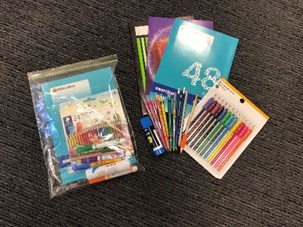 As schools adjust to the impact of COVID-19, it is important to remember that the school community can support everyone to address the physical, social and emotional aspects of remote learning. Primary Matters spoke with Mr Peter Rodda, Principal of St John Vianney’s Primary School in Canberra (SJV). Mr Rodda shared some of the strategies undertaken to help students and parents make sense of the current situation.
As schools adjust to the impact of COVID-19, it is important to remember that the school community can support everyone to address the physical, social and emotional aspects of remote learning. Primary Matters spoke with Mr Peter Rodda, Principal of St John Vianney’s Primary School in Canberra (SJV). Mr Rodda shared some of the strategies undertaken to help students and parents make sense of the current situation.
At the heart of all preparations for remote learning at SJV was a clear expectation that parents and students needed to feel fully supported so that the idea of remote learning was not causing unnecessary stress and anxiety. To achieve this, Mr Rodda and the staff at SJV made it a priority to enhance communication between the school and families. The school ensured that families had all information as soon as it was available.
Some of the ways the school community has been supported to date include:
- making devices available to families so that each student had access to their own device and to ensure quality learning
- staff training in remote delivery tools and techniques. These included the use of Class Dojo, Google classrooms, See Saw, Microsoft Teams, School website and a range of socialisation tools.
- Handing out stationery packs to each student.
 Development of staff protocols for online learning at SJV.
Development of staff protocols for online learning at SJV.- Development of Remote Learning & SJV – Parent and Student Guide. Some of the issues addressed in this document included:
- what the school wanted to achieve through a remote learning program
- what remote learning means for essential worker families
- a weekly schedule of tasks for students based on current classroom routines
- advice to families how the schedule could look differently for each family
- advice on how teachers, students and parents could communicate
- advice on how teachers and classroom support assistants (CSAs) would be working with students remotely. This included advice on how CSAs may
- spend time reading with and listening to students
- assist individual or small groups of students
- monitor student progress on tasks
- answer questions from parents/carers and students
- prepare online learning tasks
- advice on how to plan for success during remote learning. This included, but was not limited to, advice such as:
- making sure parents/ carers had access to the online tools being used
- establishing family routines
- making parent/carer expectations for learning clear
- defining learning spaces for each child
- monitoring communications from teachers
- beginning and finishing each day with a check-in including questions such as
- What are you learning today?
- What will you need for your learning today?
- What did you learn today?
- Consider three things that went well today. Why did they go well?
- Do you need to ask the teacher something tomorrow?
- encouraging physical activity and exercise
- monitor how much time your child is spending online
- student responsibilities. These included:
- establishing and/or following a daily routine for learning
- identifying a safe, comfortable, quiet space where they can work effectively
- monitoring digital platforms and communication
- doing their best work
- doing their best to meet timelines, commitments and due dates
- communicating proactively with teachers if they cannot meet deadlines or require additional support
- collaborating with, and supporting their classmates in their learning
- complying with the Student ICT User Agreement.
Mr Rodda identified constantly changing circumstances at both national and local levels as one of the greatest challenges for teachers and families to date. This included ongoing considerations around student and teacher online safety protocols.
Mr Rodda identified the positivity and professionalism of his staff and the support of the parent/carer community as the key to enabling the success of remote learning. He praised his teachers and parent community for living up to their school motto, Doing ordinary things extraordinarily well. This would likely be the case for many principals across Australia.